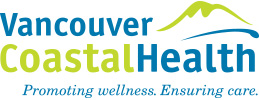How should I prepare?
A cardiac angiogram is an outpatient day procedure. You will not be staying overnight. All patients will receive detailed personal instructions from the cath lab booking department prior to their procedure. It is important to follow these instructions.
Laboratory tests before the angiogram
You will need to have lab work (blood tests) drawn prior to your procedure. This may have been arranged by the referring doctor’s office or arranged when you are contacted by the booking office to make your appointment. If you are given a lab requisition, please take it to the laboratory that is most convenient for you and have your blood tests performed. You do not need to stop eating for the blood test. Without recent (within 45 of your procedure date) blood test results: your procedure may be cancelled or delayed.
Medications
Bring all the medications you are currently taking in their original bottles with you to your procedure. Generally, patients are asked to take all medications they normally take on the morning of your procedure with clear fluids (i.e. water). The following are some of the medications that have restrictions:
- Metformin (Glucophage®) stop taking it 2 days before your procedure.
- Any other diabetic medications (including insulin) specific instructions will be discussed with you and will be based on your needs.
- Water-pills (Diuretics) medications may be restricted.
- Warfarin (Coumadin®), you will get personal instructions that depend on your medical history.
- Dabigatran (Pradaxa®), you will get personal instructions that depend on your medical history.
- Apixaban (Elequis®), you will get personal instructions that depend on your medical history.
- Rivaroxaban (Xarelto®), you will get personal instructions that depend on your medical history.
Language
If you do not speak or understand English, you need to bring an interpreter with you.
Food
- The instructions for eating will depend on your time of arrival. These will be specified on the personal instructions given to you prior to the procedure.
- Drink plenty of clear fluids up to 3 hours before the scheduled time for your angiogram.
- You may want to bring a snack to eat after your procedure if you have specific diet restrictions.
- Sandwiches, juice and water are provided.
Clothing
- Wear loose, comfortable clothing and shoes when you come for your procedure.
- The hospital is a fragrance-free area. Please do not wear perfume, aftershave, or other scented products.
- It is important to leave money, credit cards and valuables at home.
Transport arrangements
- Please arrive at the time stated as Arrival time on your instructions. This time includes the preparation time needed for your procedure.
- You will not be permitted to leave the hospital alone after your procedure.
- You will need someone to stay with you, or for you to stay with someone overnight. This is for your safety.
- You are not to drive for 24 hours after a basic angiogram procedure.
- When you arrive at Heart Services Station 7, let the receptionist know your travel arrangements by providing the name and phone number of your driver. Your driver will be contacted 1 – 3 hours before your discharge.
- Your driver will need to come to the Cardiac Investigation Unit (CIU) between Station 6 and Station 7 to pick you up.
- If you are from out of town, make arrangements to stay one day within the Greater Vancouver Area before traveling home. This is for your safety.
Other Instructions
- The procedure takes approximately 30 – 60 minutes to complete. You can expect to be in the hospital for 6 to 10 hours. This includes preparation time, procedure time and recovery.
- Your procedure time is approximate. Please note: procedures may not be done in the order of patient arrival. There are 3 labs and different tests in each lab. Some procedures may take unexpectedly longer time, and emergency cases may arrive by ambulance or from emergency during the day.
- Bring something to read.
- Visitors are not allowed in the procedure rooms.
- Please be aware that cell phone coverage is not reliable in some areas of the hospital.
- There is limited space in the patient care areas. In busy departments it is harder to maintain privacy with visitors present. As such, you may not be able to have visitors at the bedside during your stay.
- Leave your valuables at home.
Next article:


